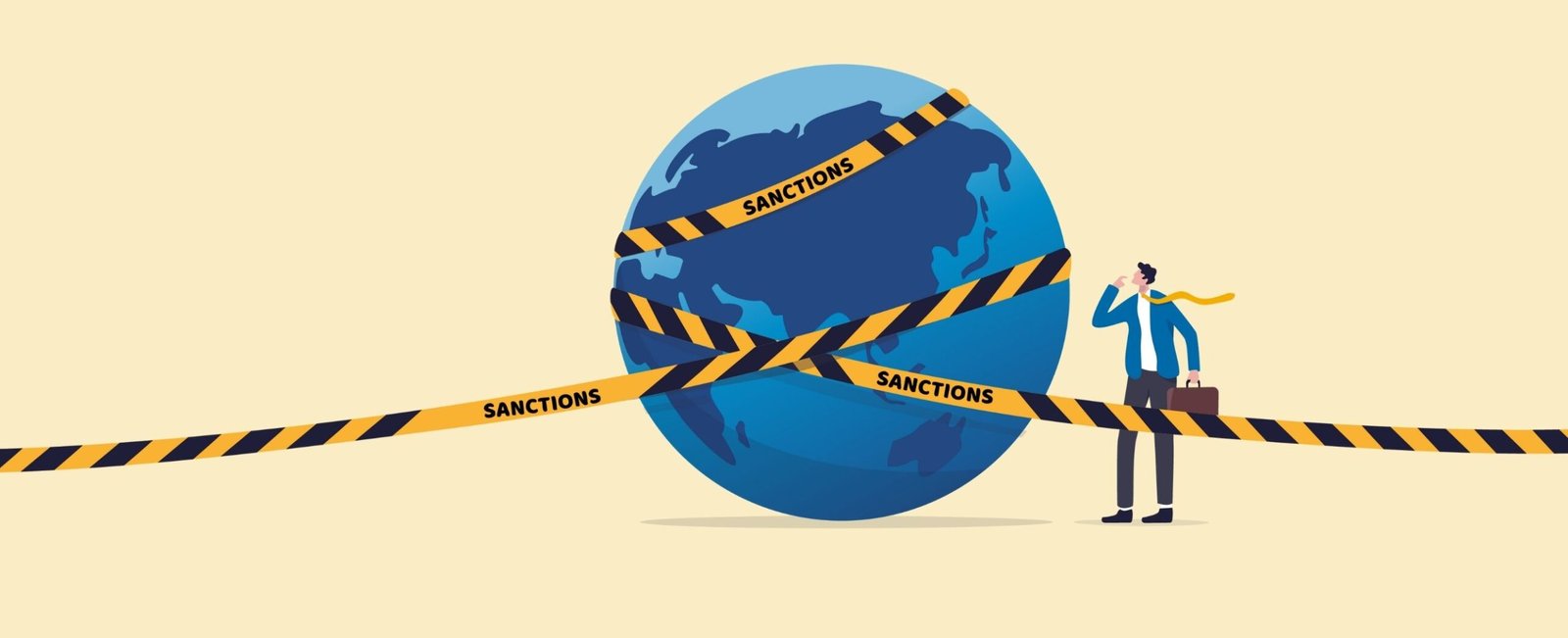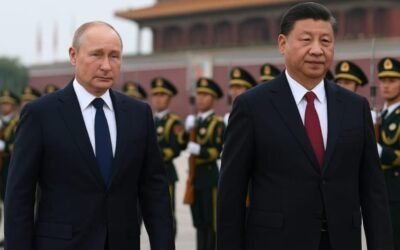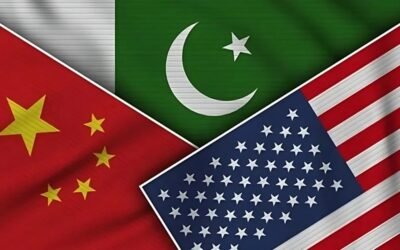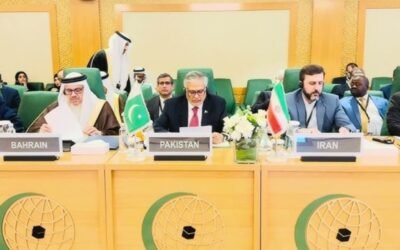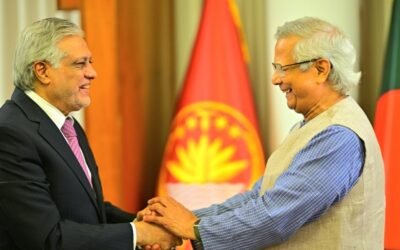Global law, sanctions, and sovereignty are three main pillars of international relations. Each has a specific role. Global law establishes a legal framework for how states behave. Sanctions are used to enforce rules or punish violations. Sovereignty ensures states have the right to govern themselves without outside interference. These principles don’t always align, and in many cases, they directly oppose each other.
In today’s world order, global law, sanctions, and sovereignty don’t just coexist—they constantly compete for dominance.
International law comprises the set of rules that govern the actions of states and other global actors. It relies on treaties, customary practices, general principles of law, and judicial decisions. Its goal is to foster peace, security, cooperation, and dispute resolution. Institutions like the United Nations, the International Court of Justice, and the International Criminal Court help interpret and uphold this legal system. However, enforcement of international law is limited because there is no global police force. Adherence depends on the cooperation of states. When states disregard international law, responses differ. Sometimes they face diplomatic pressure, and in serious cases, the United Nations Security Council may authorize sanctions or military action.
#ICC President Judge Tomoko Akane on #17July, the Day of International Criminal Justice ➡️ https://t.co/oHViGGgQB4
Building a #MoreJustWorld pic.twitter.com/nTMq5ZMrDm
— Int’l Criminal Court (@IntlCrimCourt) July 17, 2025
Instruments of Pressure and Control
Sanctions are measures imposed to compel changes in behaviour, punish violations, or signal international disapproval. They can be economic, financial, diplomatic, or military in nature. Examples include freezing of assets, trade embargoes, suspension of aid, or restrictions on international travel. Multilateral sanctions are imposed with the backing of international bodies, often the UN Security Council. These carry legal authority under the UN Charter. Unilateral sanctions are imposed by individual states, most often the United States or the European Union, without global consensus.
For more than two decades, the UN’s humanitarian air service has delivered life-saving humanitarian aid to people in remote and hard-to-reach areas.
Despite funding cuts, @WFP_UNHAS remains committed to its vital work serving the world’s most vulnerable.https://t.co/IUvfCuUMle pic.twitter.com/t0Mx6QnXPD
— United Nations (@UN) July 21, 2025
The legal and ethical legitimacy of unilateral sanctions remains a contested issue. Supporters argue they are necessary in the absence of global consensus. Critics argue that they violate the principle of non-intervention and often cause economic harm to civilian populations without achieving their intended political goals.
The Foundation of the State System
Sovereignty refers to a state’s exclusive right to govern its territory and population. It is a fundamental principle of the international system. It includes the power to make laws, collect taxes, maintain borders, and conduct foreign relations. The modern state system, based on the 1648 Peace of Westphalia, is founded on the principle that states are equal in legal terms and are free from external control.
Sovereignty also encompasses the principle of non-intervention. This means no foreign government has the right to interfere in another state’s domestic affairs. However, sovereignty is not absolute. Countries that sign treaties or join international organizations often agree to restrict certain aspects of their autonomy. For example, membership in the World Trade Organization requires adherence to trade rules and dispute resolution mechanisms.
Legal Recognition and Political Reality
To qualify as a state under international law, an entity must satisfy the four criteria outlined in the 1933 Montevideo Convention. It needs to have a permanent population, a defined territory, an effective government, and the ability to engage in relations with other states. Recognition by other states, although not legally required, often determines whether a new state gains access to the international system.
Many states have been recognized despite not having full control over their territory. Bosnia and Herzegovina in 1992 and South Sudan in 2011 were admitted into the United Nations during ongoing conflicts. In contrast, entities like Palestine or Kosovo face limited recognition despite fulfilling most of the Montevideo criteria. Political interests often influence whether recognition is granted or denied.
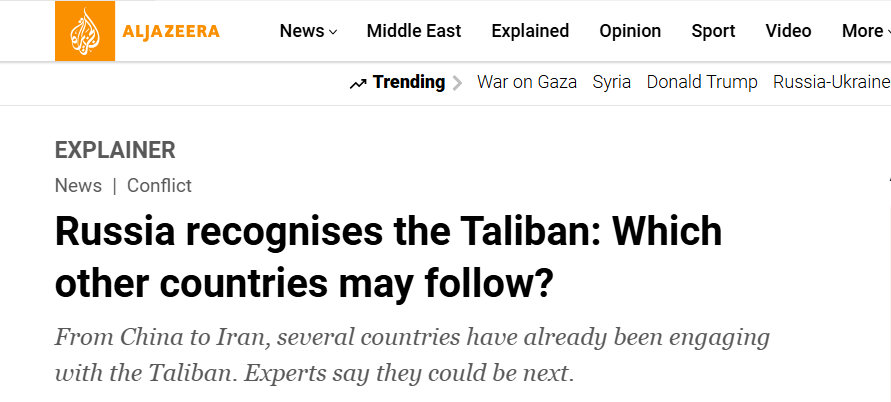
Source: Al Jazeera
Recognition can also be revoked. In Afghanistan’s case, several countries ceased recognizing the Taliban government after 2001. Recognition was restored after the Taliban regained power in 2021, although many states still avoid formal diplomatic relations.
When Law, Sanctions and Sovereignty Collide
Conflicts between these principles occur frequently. States often claim that sanctions imposed without United Nations approval violate their sovereignty. The targeted states argue that foreign powers are using economic coercion to interfere in domestic matters. At the same time, the imposing states claim that their actions are necessary to defend international law or prevent human rights abuses.
For example, unilateral sanctions placed on Iran, Venezuela, and Russia have sparked global debates. While the United States justifies these sanctions as responses to nuclear proliferation, electoral fraud, or aggression, the affected states call them unlawful and harmful to civilians.
Sanctions may aim to uphold the law, but without a global consensus, they often clash with a state’s right to self-governance.
In 2021, the World Health Organization’s Pandemic Intelligence Hub triggered new concerns about global governance and sovereignty. During a public event, German officials suggested that states failing to share outbreak data should face international sanctions. WHO leadership supported exploring this option. Critics warned that such proposals ignore the legal principle of data sovereignty and the unequal access to health technology. They also argued that sanctions could discourage transparency during future outbreaks.
The Fragile Balance
Balancing international obligations with national independence is a key challenge in global governance. Global law requires cooperation. Sanctions enforce cooperation or penalize violations. Sovereignty defends the right to refuse external pressure. These three forces are always in a state of tension.
The international system lacks a clear solution. Each situation depends on context, power relations, and political calculations. The legitimacy of sanctions, the strength of international law, and the protection of sovereignty are all influenced by who sets the rules and who is compelled to follow them.
The future of international order lies in how wisely states balance legal obligations with sovereign rights—without tipping into coercion.
Global law cannot operate without some compromise on sovereignty. Sanctions, if misused, can weaken both law and peace. And sovereignty, if regarded as absolute, can serve as a shield for impunity. That’s why states continue to navigate these principles with caution, calculation, and sometimes confrontation.

